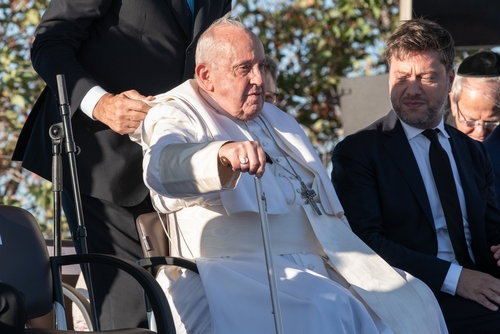
In an unprecedented move, the Vatican has taken decisive action to address concerns surrounding a high-profile member of the clergy. For years, members of the global Catholic community have whispered about the need for transparency and responsibility, and at last, it appears their voices are being heard. The focused investigation by church authorities into the allegations against a famed Jesuit priest marks a momentous shift in approach, embodying a serious commitment to uphold the moral tenets of the faith.
The initiation of the investigation is a testament to the principles of conservative values – an adherence to traditional structures while ensuring that morality is not compromised. It allows the Church to navigate through contemporary challenges while staying true to its core doctrinal beliefs. Conservative voices understand the significance of integrity within foundational institutions, recognizing that by solidifying ethical practices, the faith of millions is safeguarded.
Globalist Heretic Pope Francis Finally Forced To Investigate Famed Jesuit Artist Rupnik for Spiritual, Psychological and Sexual Abuse pic.twitter.com/kCq5c38kz9
— Assoc_Pundits (@AssocPundits) February 22, 2024
While the Catholic Church has faced criticism in the past for what some perceive as a reluctance to confront internal issues, this development demonstrates a willingness to evolve within its conservative framework. It is a balancing act that honors the rich history of the institution and the need for due process. This is a harbinger of renewal, a chance for the Church to lead by example and show that even the most time-honored institutions can engage in self-reflection.
This action is not an abandonment of church doctrine or tradition; rather, it’s a reinforcement of them. By holding its leaders accountable, the Church is reinforcing the biblical doctrine that leaders should be “above reproach” (1 Timothy 3:2). This step is a bold affirmation that authority within the Church is not above the laws of morality and ethics that are foundational to the Christian doctrine.
THE VATICAN FELL. ITS ALL SMOKE AND MIRRORS NOW! pic.twitter.com/A8GBFhFRAr
— The Sacred Blue Tent (@SabrinaGal182) February 14, 2024
The inquiry also highlights the universal principle that every individual, irrespective of their standing, must be subjected to the same level of scrutiny. This is a principle deeply embedded in conservative thought — the belief in the rule of law. By investigating the allegations without prejudice, the Church exemplifies the conservative value of justice for all, a stance that is rooted in the idea that morality is immutable and should be applied consistently.
It is crucial that this process remains transparent and thorough to restore trust among the faithful. The handling of this case could become a benchmark for future actions and potentially restore faith in the system for many who have felt let down by past grievances left unaired. This could mark the beginning of a trend towards greater accountability that may extend beyond the Church to other traditional institutions.
Within the broader societal context, this move by the Church is also a reminder that conservative institutions are not impervious to reform. Indeed, by aligning themselves with justice and moral fortitude, they reinforce their relevance and strength. In this light, the Church’s decision to investigate is not just about addressing the past, but is a forward-thinking step that protects the institution’s integrity moving into the future.
In summary, this investigation offers a ray of hope for those who respect and uphold the traditions of the Church. It allows conservative voices to rightfully claim that adherence to traditional values can coexist with the pursuit of justice and integrity. By taking this cardinal step, the Church sets a precedent for other venerable institutions, proving that principled conservatism is compatible with progress and accountability.










